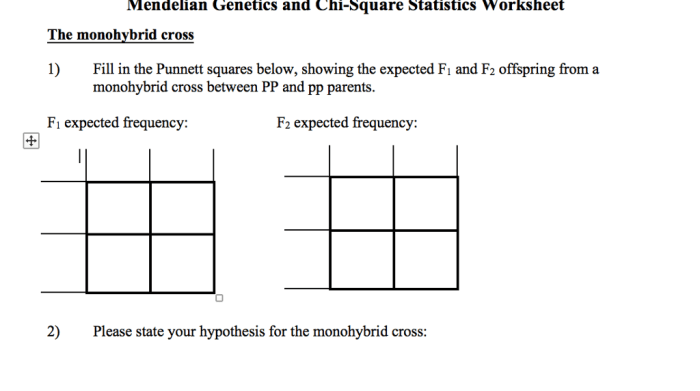Which statements about mutations are true check all that apply – Which statements about mutations are true? Check all that apply. Mutations are changes to the DNA sequence of an organism. They can be caused by a variety of factors, including environmental factors such as radiation and chemicals, and errors during DNA replication.
Mutations can have a variety of effects on gene function and cellular processes, and can lead to genetic disorders and diseases. They can also contribute to the evolution of species.
In this article, we will discuss the different types of mutations, their causes and effects, and the techniques used to detect and analyze them. We will also discuss the ethical implications of genetic testing for mutations.
Types of Mutations
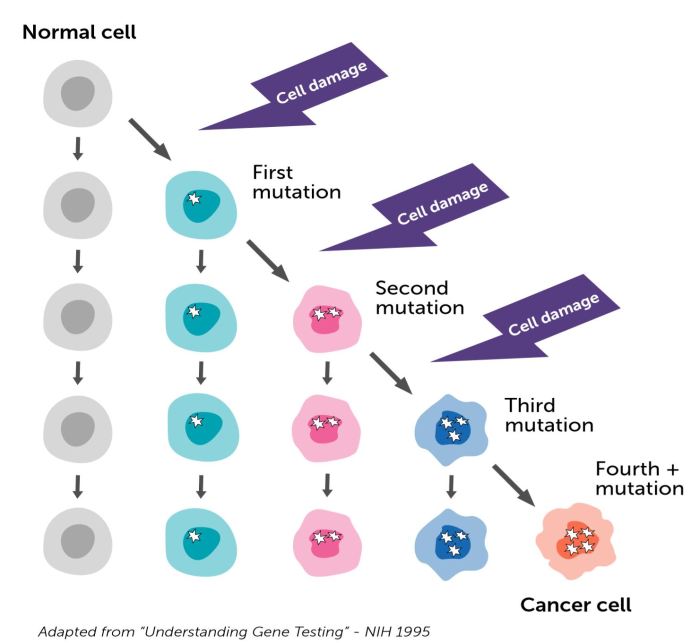
Mutations are changes in the nucleotide sequence of DNA or RNA. They can be classified into two main types: gene mutations and chromosomal mutations.
Gene Mutations
- Single-nucleotide substitutions:The replacement of one nucleotide with another.
- Insertions:The addition of one or more nucleotides into a sequence.
- Deletions:The removal of one or more nucleotides from a sequence.
Chromosomal Mutations
- Duplications:The repetition of a section of DNA within a chromosome.
- Inversions:The reversal of the orientation of a section of DNA within a chromosome.
- Translocations:The exchange of genetic material between two different chromosomes.
Causes of Mutations
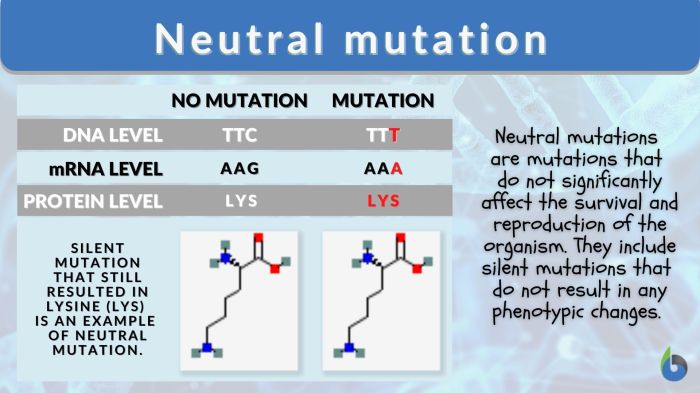
Mutations can be caused by a variety of factors, including:
Environmental Factors
- Radiation:Ionizing radiation, such as X-rays and gamma rays, can damage DNA by causing breaks in the sugar-phosphate backbone or by altering the nitrogenous bases.
- Chemicals:Certain chemicals, such as alkylating agents and intercalating agents, can react with DNA and cause mutations.
Errors During DNA Replication
Errors during DNA replication can also lead to mutations. These errors can occur when the DNA polymerase enzyme misreads the template strand or when it skips a nucleotide.
Effects of Mutations
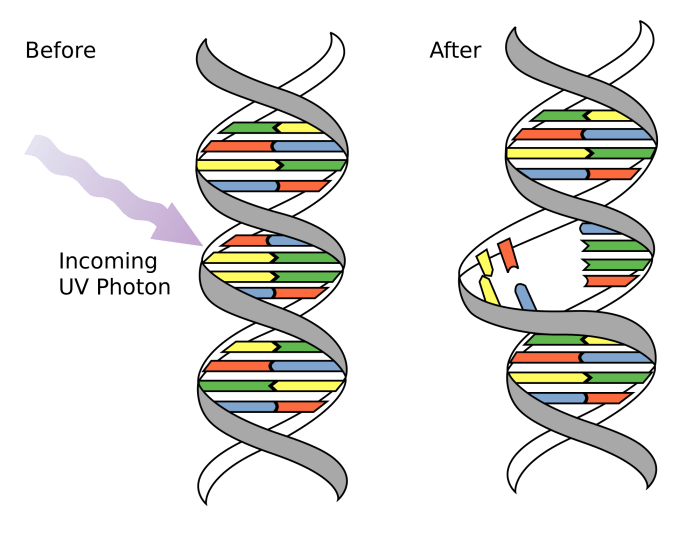
The effects of mutations can vary depending on the type of mutation and the location of the mutation within the gene.
Neutral Mutations
Neutral mutations do not have any effect on the phenotype of the organism.
Beneficial Mutations
Beneficial mutations can provide an advantage to the organism, such as increased resistance to disease or improved fitness.
Deleterious Mutations
Deleterious mutations can have negative effects on the organism, such as causing genetic disorders or diseases.
Detection and Analysis of Mutations
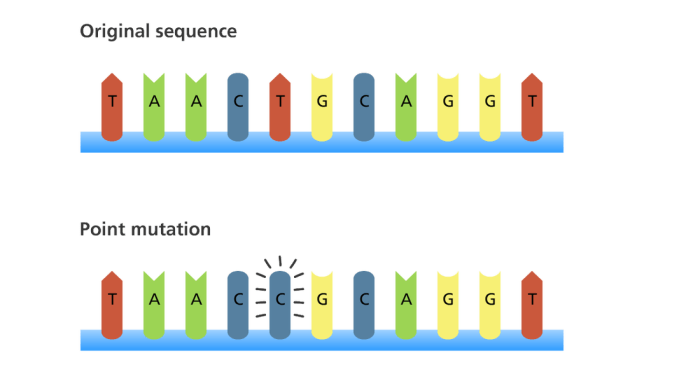
Mutations can be detected and analyzed using a variety of techniques, including:
DNA Sequencing, Which statements about mutations are true check all that apply
DNA sequencing is the process of determining the order of nucleotides in a DNA molecule. This technique can be used to identify mutations by comparing the sequence of a mutant DNA molecule to the sequence of a normal DNA molecule.
Gel Electrophoresis
Gel electrophoresis is a technique that can be used to separate DNA fragments based on their size. This technique can be used to detect mutations that cause changes in the size of a DNA fragment.
Mutation Analysis
Mutation analysis is the process of analyzing mutations to determine their effects on gene function and cellular processes. This information can be used to diagnose genetic disorders and diseases and to develop new treatments.
FAQ Corner: Which Statements About Mutations Are True Check All That Apply
What are the different types of mutations?
There are many different types of mutations, including point mutations, insertions, deletions, and inversions. Point mutations are changes to a single nucleotide base pair, while insertions and deletions involve the addition or removal of nucleotides. Inversions are changes in the order of nucleotides.
What are the causes of mutations?
Mutations can be caused by a variety of factors, including environmental factors such as radiation and chemicals, and errors during DNA replication.
What are the effects of mutations?
Mutations can have a variety of effects on gene function and cellular processes, and can lead to genetic disorders and diseases. They can also contribute to the evolution of species.
How are mutations detected and analyzed?
Mutations can be detected and analyzed using a variety of techniques, including DNA sequencing and PCR.
What are the ethical implications of genetic testing for mutations?
Genetic testing for mutations can have a variety of ethical implications, including the potential for discrimination and stigmatization.
